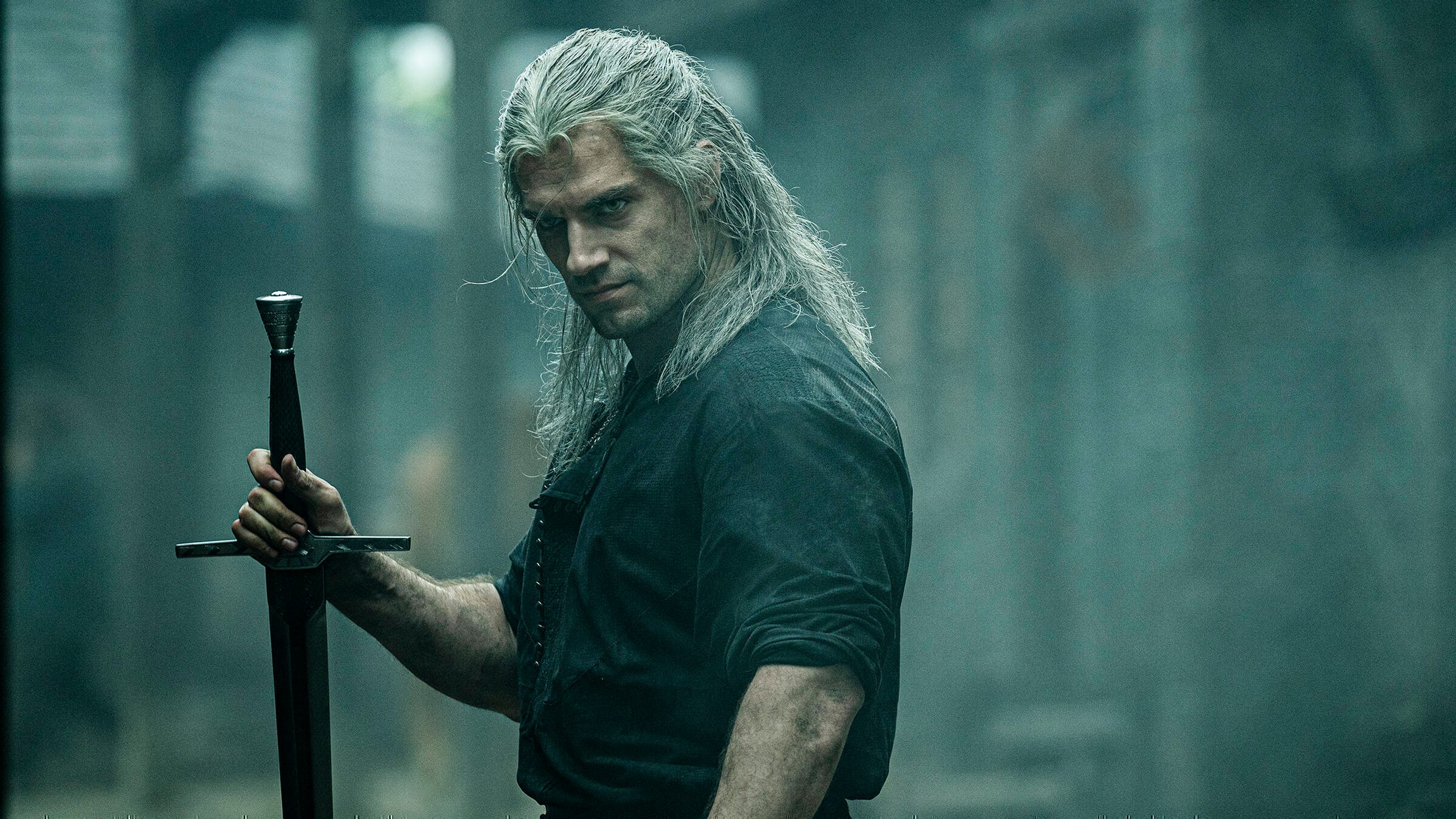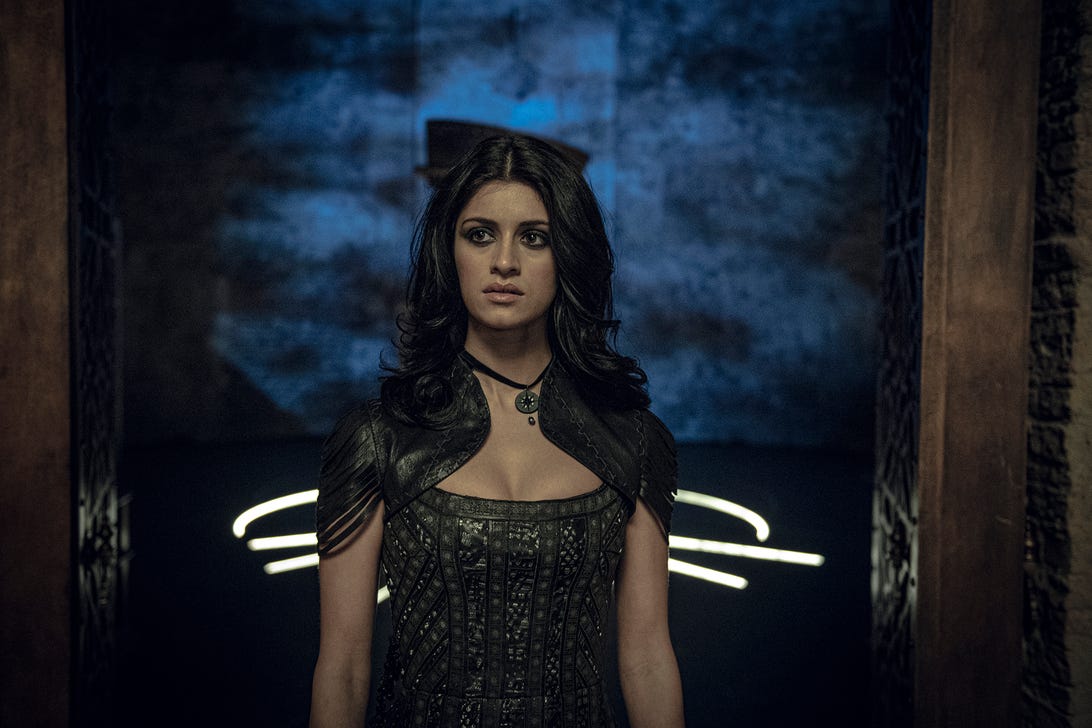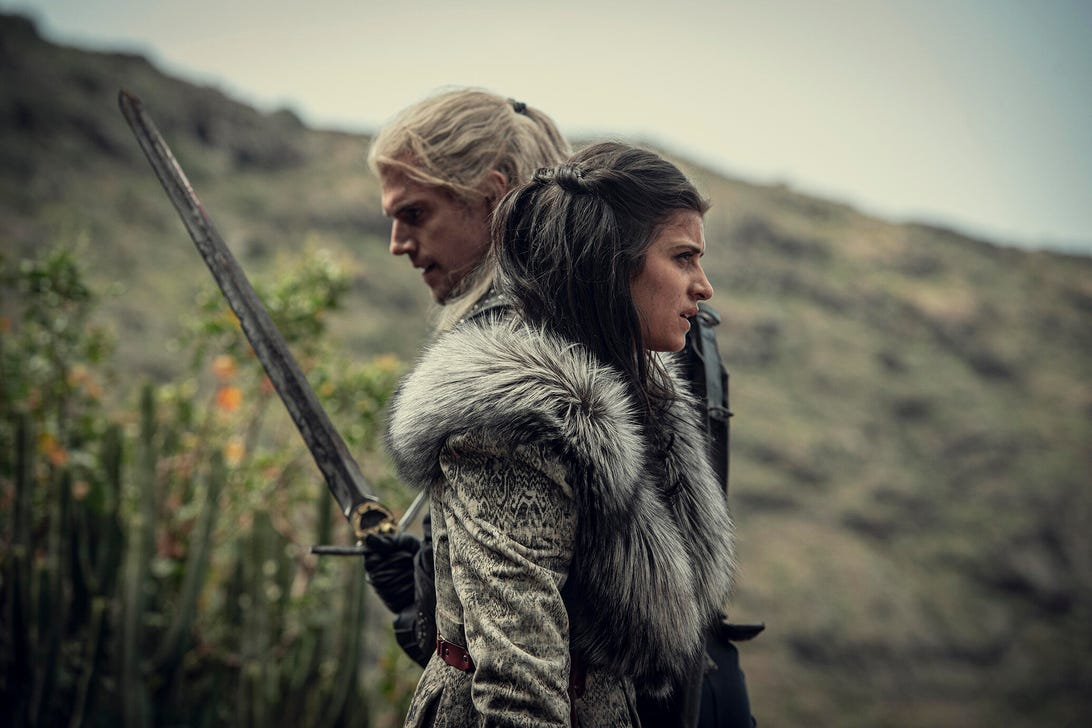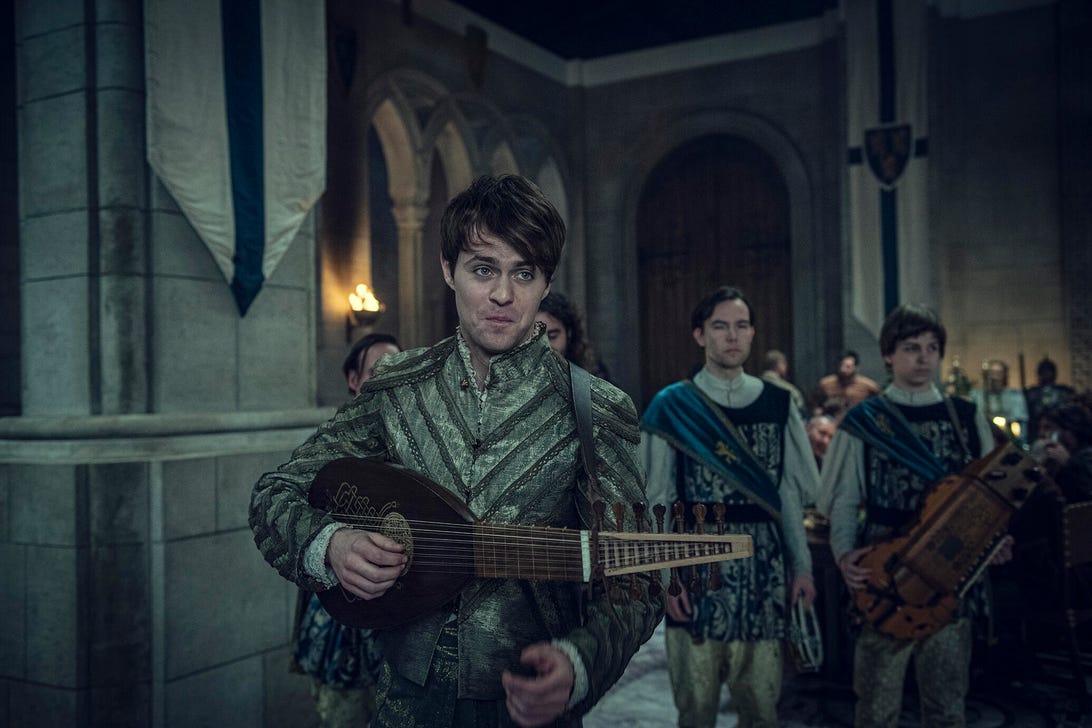
The Witcher's Lauren Schmidt Hissrich on Writing a Hero Whose Biggest Villain Is the Plot
The showrunner reflects on the challenges in making Season 1 – including those tricky timelines – and what she learned for Season 2
Adapting The Witcher for the screen was always going to be a difficult task. While the franchise originated as a collection of short stories and novels by Polish author Andrzej Sapkowski, it was the video games that popularized the mercenary monster hunter Geralt of Rivia and the magical world of The Continent -- a series which plays with the same characters and mythology as the books, but narratively has very little in common with Sapkowski's source material. As a result, the expectations going into the Netflix series were both impossibly high but also incredibly varied, depending on which version of Geralt's story the viewer was most familiar with.
Having never done a fantasy series before, showrunner Lauren Schmidt Hissrich said that when she was first approached by Netflix about adapting the books for television even she wasn't sure if she was the right person to bring this beloved saga to screen. However, the response to the show's first season (it was watched by 76 million people in the first month, per Netflix) proves that Hissrich's fresh perspective on these well-worn characters is exactly what The Witcher franchise needed to secure its long overdue small-screen success.
Of course, The Witcher was not unequivocally beloved, with the series proving polarizing among viewers, some of whom claimed the show's three timelines were too confusing to follow, while others struggled to connect with one of the lead characters, Cirilla (Freya Allan), a princess cast out on her own and destined for great things. Hissrich paid attention to the critiques in the months that followed The Witcher's debut, engaging with the fandom and considering what learnings she could apply when Season 2 started production in February. But only a few weeks into filming the anticipated second season in the U.K., The Witcher had to shut down production due to the coronavirus; it's now slated to resume on Aug. 17.
Netflix's The Witcher Season 2: Cast, Premiere Date, and More
When speaking with TV Guide in May, Hissrich talked about what makes a character like Geralt (Henry Cavill) so unique, the biggest things she learned while making Season 1, and what viewers can expect from Season 2.
There was this great Twitter thread that went around after the first season came out which raised the point that Geralt was an interesting protagonist because his driving motivation is that he doesn't want whatever is happening in a scene to happen. Someone even called him a protagonist whose antagonist is the plot. Do you think Geralt is a unique protagonist in that sense?
Hissrich: Oh my god, I love this because, absolutely. One of the sort of internal conflicts, I think, in Geralt, is the desire to not get involved. I mean, from day one he's like, "I'm a neutral party. I don't want to be a part of this." And yet he can't help himself. ... And so what I think is fun in terms of Geralt as a protagonist is you have this external shell, which is this tough man who's walking through the world who is determined not to need anyone. He's there to do his job. He's there for money. That's all he cares about. But it's all protecting the sort of internal -- we call it his white knight syndrome -- his internal desire to be a hero and the sort of human emotions that he can't help but let filter through, even though he's determined to tell everyone that he doesn't have an emotional capacity. I think a lot of that conflict is fun to play, and it's kind of all going to explode in Season 2. All of the times that we saw him withhold, all the times that we saw Geralt sort of internalize things as opposed to externalize, in Season 2 he's going to be confronted with that a lot more and has to make some different choices.
The whole first season followed Geralt pushing against his destiny. But then we ended the season with him finally uniting with Ciri and maybe not ready to embrace his destiny, but at least accept what is expected of him. How will Geralt's new perspective change the way we see this character in Season 2?
Hissrich: Well, what's really fun about Season 2 is that in the books, [after] Geralt and Ciri meet in that moment in Sodden … when we come back in the next book, we've actually skipped a lot of time. ... Well, we found in writing the show that we didn't actually want to skip over those first months of them getting to know each other. That's part of the fun, is to take these characters, as you say, who understand that they're each other's destiny -- not really embracing it, but accepting that this is what they need to do to continue walking through The Continent. And then see like, what would that really be like? What would it be like for two strangers to come together and feel like that's what they've been driving for for the entire season? They finally got together and then they're like, "Oh, I don't know you at all. You are a stranger."

And you know, Geralt, of course, has no experience with parenting, with children, with having a sort of continuous relationship in his life. He's a vagabond of sorts. He's a traveler. He purposely doesn't establish long relationships and now he has one that's going to be with him for a very long time. And for her, for Ciri, we started her journey in Season 1 really about what it would be like for a princess who's been protected her entire life to suddenly be thrust out on her own. And one of the things that I love doing in Season 1, she has this final moment where she's actually not running away from the problem. In Episode 7, she picks up this stick, literally, and charges toward the problem. And it's this slight shift in Ciri where she's not going to run anymore. And now we get to see her with that new attitude, with this kind of lovely stubbornness and grit that she's built over Season 1, but then give her a father figure who's suddenly going to start telling her what to do again.
What Was Geralt's Last Wish in The Witcher?
We really don't see Ciri very much in the books before she is already training with Geralt. In Season 2, how much are we going to see that progression from sheltered princess to this powerful figure she becomes? How fast are you planning to move that storyline along or do you really want to savor that early growth?
Hissrich: We're really trying to savor it. I think one of the things that of course happens when you are adapting material is that you have these eight episodes, they're an hour long each, [and] we had much more of Ciri's story in Season 1 that we ended up having to trim down. And it's one of the things that when I look at the season, I see she's not as present, Ciri's not as present as I would have liked her to be. So in Season 2, we're really digging in with her character and we're going to understand her a lot more. And yes, that growth that you're describing, where she starts training, where she actually becomes the character that we know from the books and later from the video games, we will see her become that person. But she doesn't change on a dime. What we don't want to do is forget where she came from.

In the books Yennefer (Anya Chalotra) didn't have much of a backstory, and I think as a result there were some fans who struggled to connect with her since she came off as cold. So how important was it to you when crafting this first season to not only give her a past that makes her a little more nuanced and explains how she became this character, but also like leaned into progressing feminist fantasy?
Hissrich: It was really important to me. I was amazed when I read the books. I think fantasy written in Central Europe in the 1980s, you know, I actually didn't expect the strong female characters that I read. And when I sat down and talked to Sapkowski about them, he was like, "No, these are what women are in my life." So it was very important that these women be strong and independent in the books. I think for me, I just understand where Yennefer came from. … Part of her strength is her coldness, are all of these boundaries that she's put up. I think that is a more typical portrayal of a woman at this time -- it's like no, she's strong, she's kickass. She doesn't have a vulnerable side. And that's not true. Everyone is covering up something. Everyone has vulnerabilities. And one of the things that worked beautifully in the books that I don't feel works as well on television is using flashbacks to tell that slowly through time. I really wanted to get in and just dig into her past and actually be there with her and understand what happens versus sort of what's in the books -- it's kind of Geralt surmising what he thinks might have happened to her in the past. I just wanted it from Yennefer's perspective. I wanted to have a much fuller idea of who she was.
One of Yennefer's driving forces in the books is this desire to have a child, and I wanted to understand exactly where that came from. And it's one of my favorite decisions -- obviously in the books it's a big deal -- but mages are sterilized. I wanted to make Yennefer culpable for that decision. I wanted it to partially be with her, that it wasn't something that was forced on her unfairly. Because I think that's much more reflective of real life. We all make decisions that we make and we think they're right in the moment and then they ripple out into our futures. It's just dominoes that are falling. And I think to make Yennefer not a victim, but part of that decision just makes her a more interesting character to me and much more like the women I know in real life.

In this first season, you had this huge task of trying to introduce this whole world, getting viewers to connect with not only the three lead characters but this great supporting ensemble, and do it all across three timelines. So what were the biggest challenges to balancing all of this and what were the biggest successes?
Hissrich: I still kind of look back at Season 1 and think, how did that all come together? The timelines are obviously one of the most controversial aspects of the show. I continue to be in love with them and will fight for them and be passionate about them. To me, it's the best way to tell the stories that I wanted to tell. I do hear that there was an audience out there that was a little like, "What the hell is going on? Why don't I understand this?" I think for those people, Season 2 will be a lot easier to follow. I think Season 2 aligns all of our characters on a similar timeline. We're playing with time a little bit still, but in a different way, an easier, I think, to swallow away.
That being said, one of the biggest challenges of Season 1 was how to honor the first two books of short stories, which I think really do an amazing job at building the world, but especially building Geralt and understanding who this man is and all of these individual adventures that he has the books, how they start to join together into a linear narrative that creates the Geralt that we see in the Saga. That's probably what I'm proudest of, is being able to take short stories, standalone adventures, and put them in an order that makes sense and builds out a character more fully.
9 Differences Between Netflix's The Witcher and the Books
And then, as we've discussed, bringing Yennefer and Ciri to the forefront changed the dynamic of the show and I think brought an entirely new audience to the show that perhaps thought that maybe fantasy wasn't for them. I'm one of those people. I've spoken a lot about the fact that when Netflix first approached me about The Witcher I said, "I don't think I'm the right person." I loved The Last Wish, but I'm not a huge fan of fantasy. And my amazing executives at Netflix kind of said like, "how would you approach it?" And what I'm proudest of is it's a show that I like watching too. And I have friends and strangers all over the world saying like, "I didn't think this would be for me and yet I'm there and I came for Yennefer and I ended up falling in love with Geralt." Or video game fans, for instance, who really know the story through only Geralt's lens and were surprised to see just how well we could portray these other characters too. I think that the way we told the story and the way that we were allowed to develop the characters is definitely the thing I'm proud of most.

I loved how every episode was so distinct and had its own unique tone. Obviously, the short stories lent themselves really well to that. But as the show progresses and you get more into the novels, do you still plan to sort of embrace episodic stories and this big range of tones?
Hissrich: Absolutely. I'm glad you said that. It's one of my favorite things too. When I started doing press for Season 1 and people would ask about the show, I'd be like, it's a fantasy adventure. And then I'd be like, well, but sometimes it's also a romance. And then there are some detective stories in there and obviously there's monsters and then there's these epic battles. And ... it doesn't take itself too seriously. And I think that all of those aspects are in the books. I think when books are adapted into shows or into movies, there's the sense of "no, it needs to be one thing. We need to pigeonhole that television show or pigeonhole that feature so that we know who our audience is and we know who's going to definitely show up." And I would say all along, the writers, as a group, we resisted that. I think that there are things in the show for everyone. And we're lucky to have partners like Netflix that allowed us to take that chance.
Moving into Season 2, what's interesting is our storylines start to become a little bit more cohesive. The characters start overlapping a lot more. But it's been really important to us to continue exactly what you brought up, those different genres and different tones within the show. So there's still a lot of really dark humor and some ridiculously silly humor. There's obviously romance; Geralt and Yennefer are at the forefront of it. But I think now we have this additional layer of family. There's a new emotional layer to the show, which is what it means to be a parent, what it means to be a child, and what it means to sort of realize that you need people. And I think that's one of the most exciting parts of Season 2.
I can't end this without asking about "Toss a Coin to Your Witcher," the biggest hit of the year. Do you feel any pressure now to come up with a follow up banger for Jaskier (Joey Batey) in Season 2?
Hissrich: So, it's really funny. The lyrics to me of that song are so brilliant and they were written by Jenny Klein, who wrote the episode. … Of course in the story itself, it's about how narrators control the story. Whoever's telling the story gets to decide what actually happened. And that's all that matters. And so there's obviously some subtle bitterness and resentment knowing that whatever really happens doesn't matter. It's just about who tells it. But also, we wanted to talk about how Jaskier becomes popular by taking and exploiting Geralt's travels and why they're going to stay together for the rest of time.
And when we were writing this song, I had no idea if it was going to work. Honestly, there was a point that I was like, "what are we thinking putting an anthem in the middle of this episode? It's insane." And then the very first time that we listened to it in the sound mix and it was laid over picture and we had actually had -- Joey Batey had gone and recorded it with an orchestra -- and it was so beautiful and odd. The next morning, we came back to the mixing stage and all of us were like, "we can't get it out of our heads. It's all I sang all night." And at that point, we realized that we had something. It's weird. You never know what's gonna strike a chord. And that did so. So no, I mean, pressure-wise, Joey's an amazing singer. We want him to sing as often as possible. And I also think the idea of narrative is really important to The Witcher and the idea of who tells stories. So we're absolutely going to keep doing it.
The Witcher is available to stream on Netflix.
This interview has been edited and condensed.

